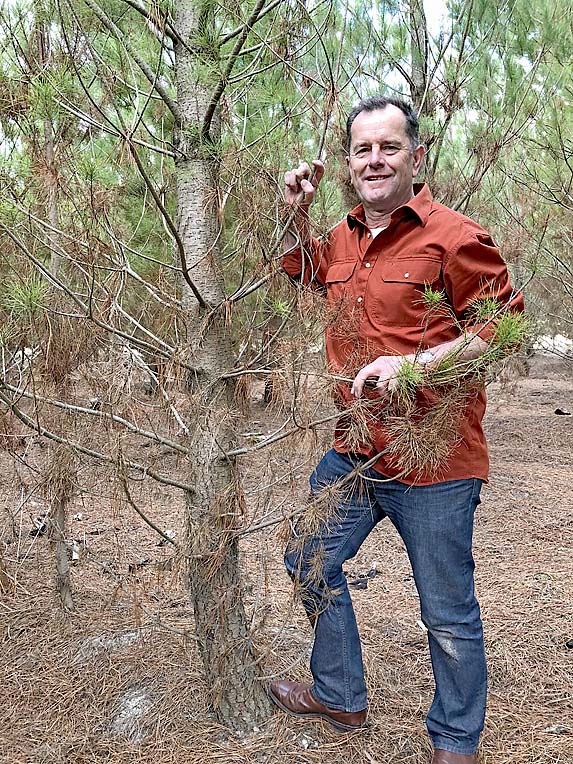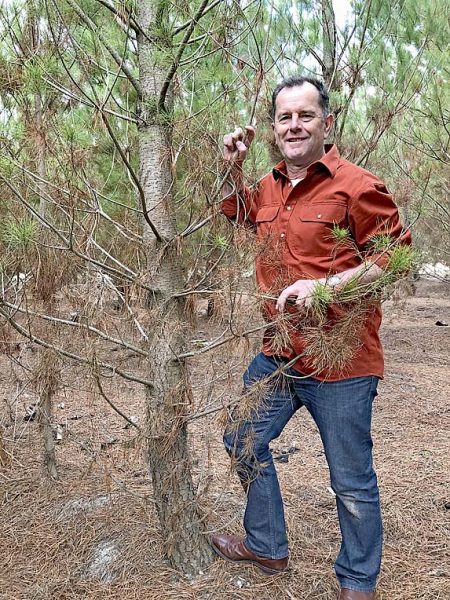

THE State Government will canvass avenues to shore up log supply for regional processing facilities as part of a renewed focus on the region’s forestry sector.
Primary Industries and Regional Development Minister Tim Whetstone – whose portfolio includes forestry – travelled to Mount Gambier late last week to spruik the government’s inaugural state budget.
Mr Whetstone – who met with forestry industry representatives – said yesterday the government was committed to growing the region’s forestry sector.
This commitment also included tackling the issue of log exports flowing to the Port of Portland.
Among the government’s new agenda is a move to restructure ForestrySA so it operates as a business and the establishment of a Forestry Industry Advisory Council.
The minister yesterday pledged the ForestrySA restructure did not mean privatisation, but focussed on moves to stop the drain on the state’s budget.
He said the government had no plans to privatise the government forestry agency following the forward sale of the region’s forestry estate.
“We want to see ForestrySA run as a business and not as a government agency,” the minister explained.
Speaking to The Border Watch yesterday, Mr Whetstone said the forestry advisory body had been widely welcomed by the regional industry, along with its commitment to ensuring log supply for regional mills.
Mr Whetstone said he was particularly pleased OneFortyOne Plantations had pledged not to export any sawlog this financial year.
He foreshadowed the need to “map out a supply” plan for regional processors, which underpinned a significant number of regional
jobs.
A key plank of the government’s forestry plan is the completion of the $8.5m forestry partnership program.
Conceding governments could not “tell private businesses what to do”, he said it was important for the government to establish the right policy framework.
“There is a lot of positivity in the industry and we want to ensure processors have enough log supply,” Mr Whetstone said.
“We want the industry to sit at the table to ensure they get the log supply they need – we will work through these issues with the advisory council.”
He said it was important the government’s plan was coordinated, which was why the advisory group was established to give the industry a voice.
Importantly, he said the advisory body – consisting of regional timber industry representatives – would have a direct line to him.
“We want to get the house in order,” Mr Whetstone said.
He said he was particularly buoyed by the $90m Timberlink expansion and the $20m sawmill upgrade by OneFortyOne Plantations.
In particular, Mr Whetstone rejected assertions the government did not have a designated forestry minister.
“Forestry has always been part of my portfolio and I have a dedicated team for forestry,” Mr Whetstone explained.
He pledged to meet with the industry advisory council regularly.







